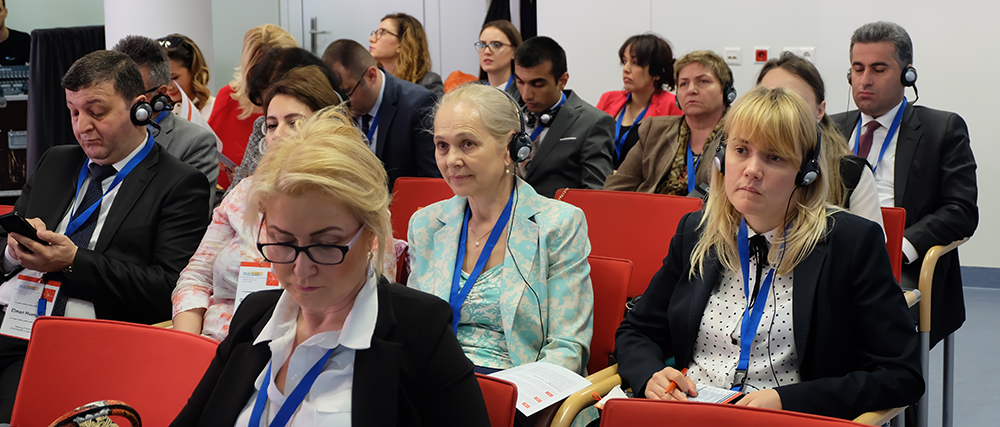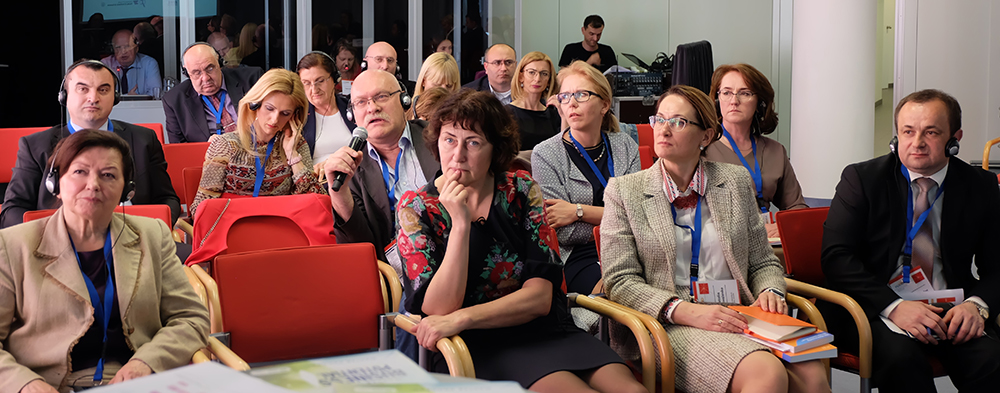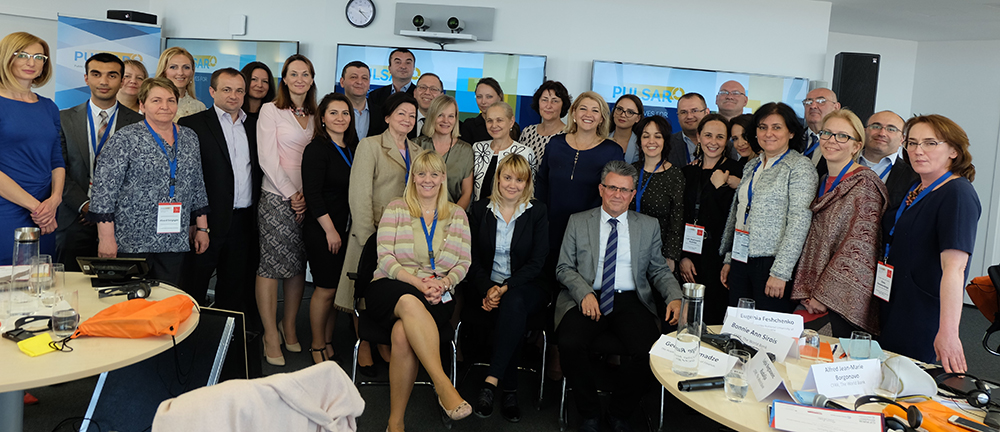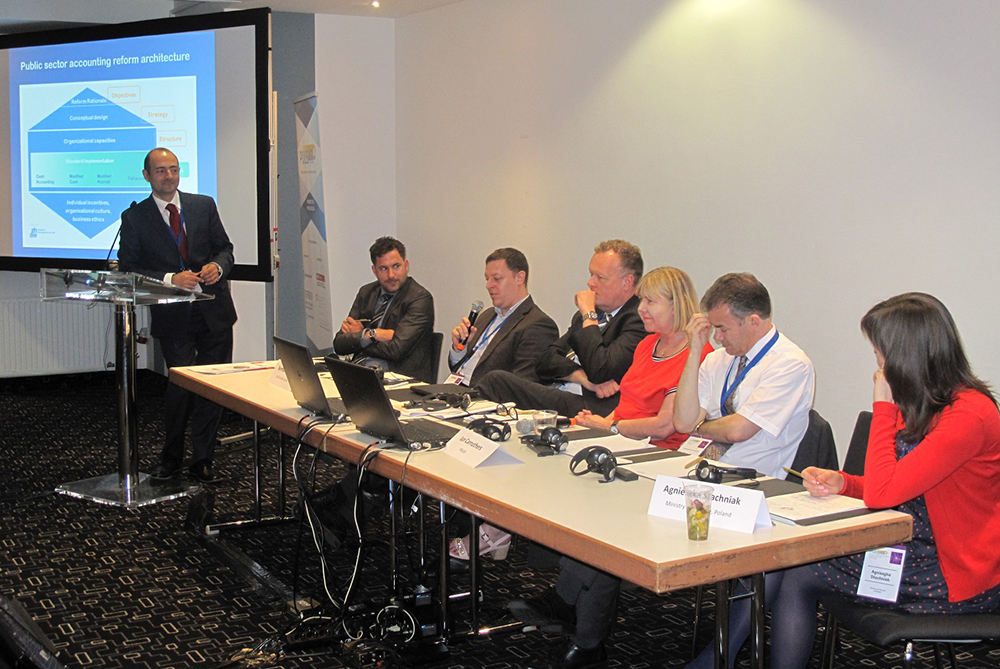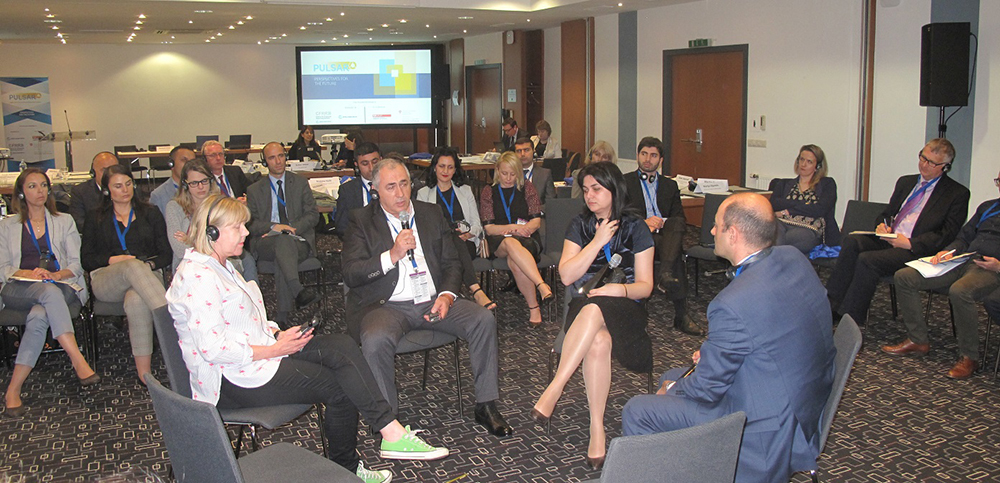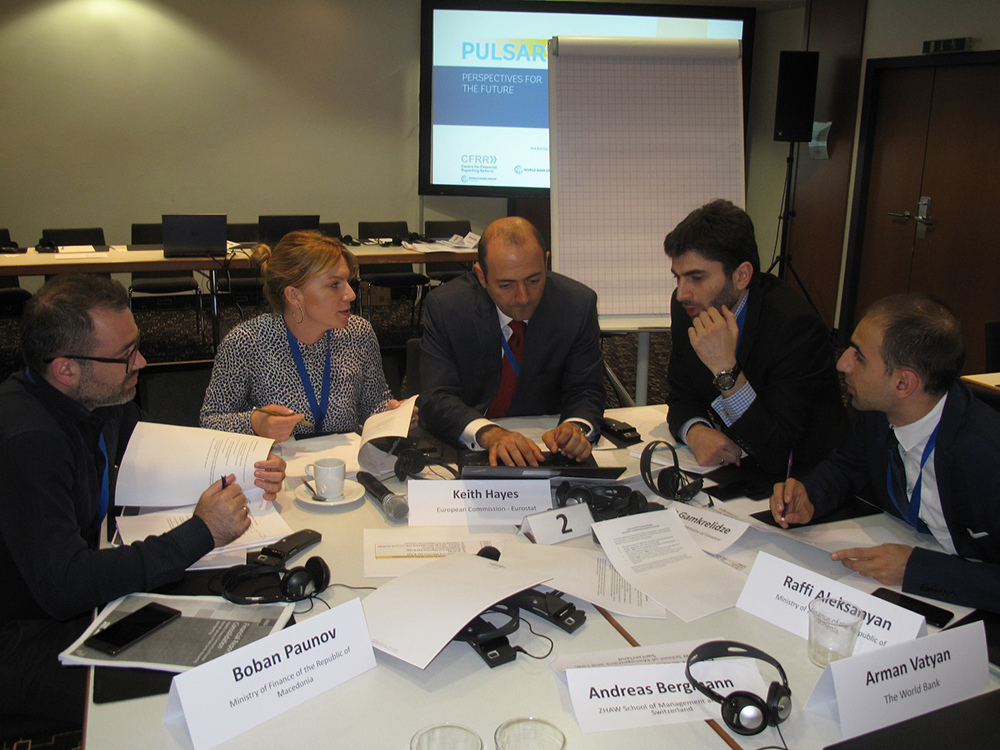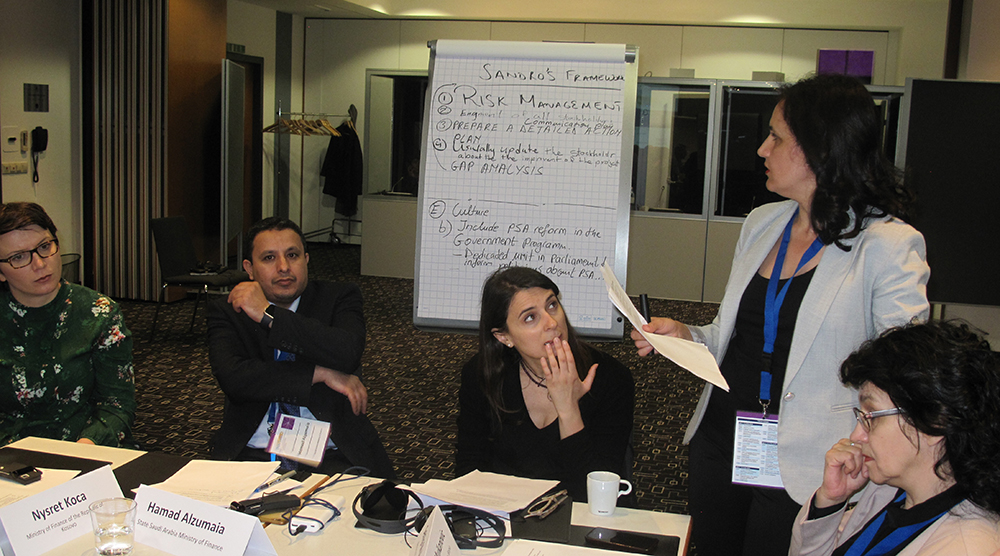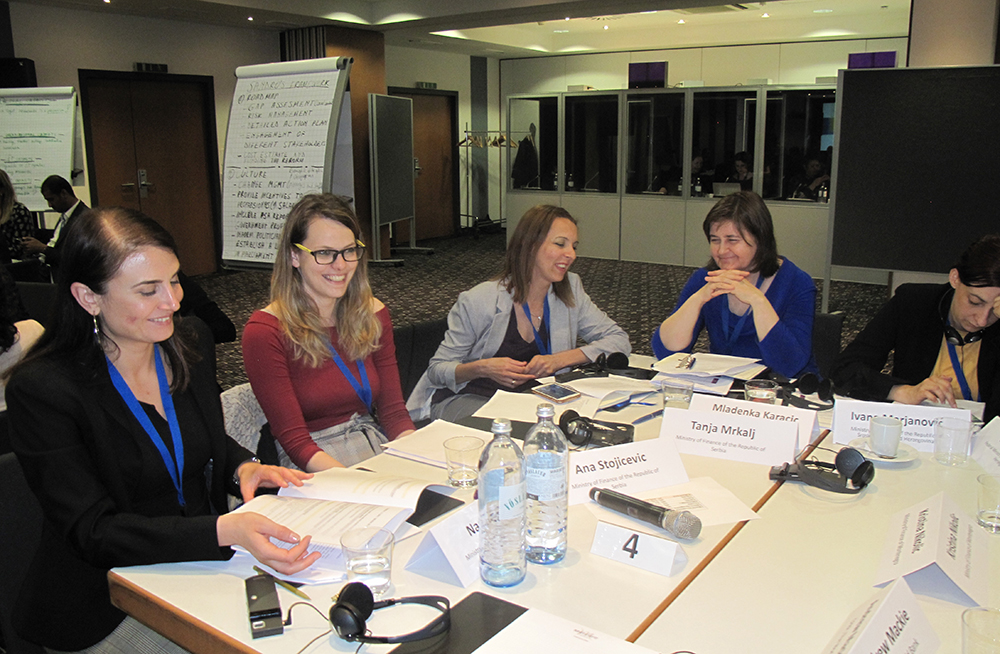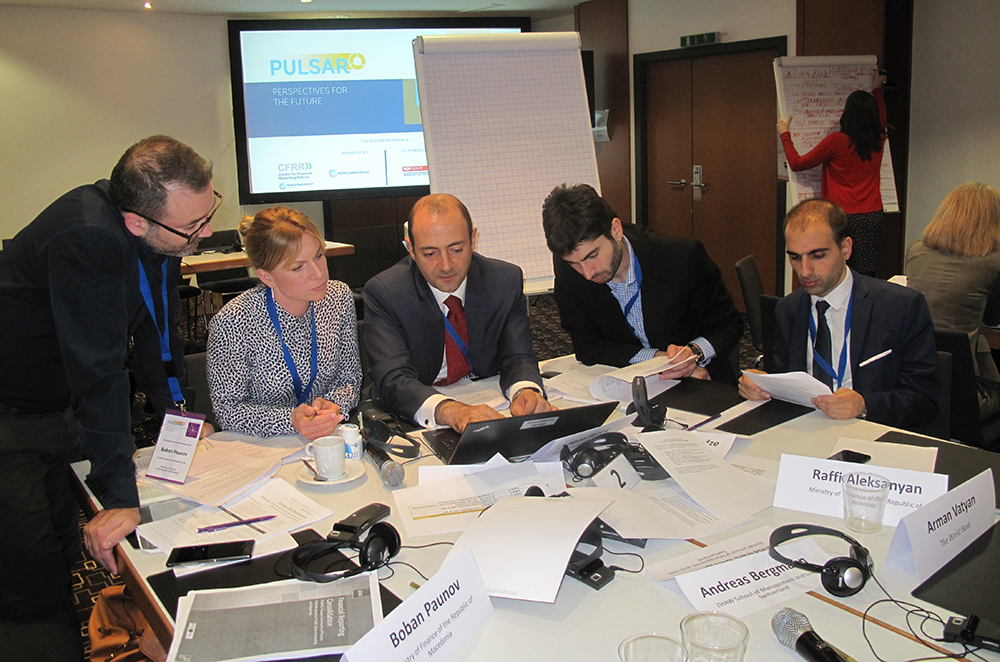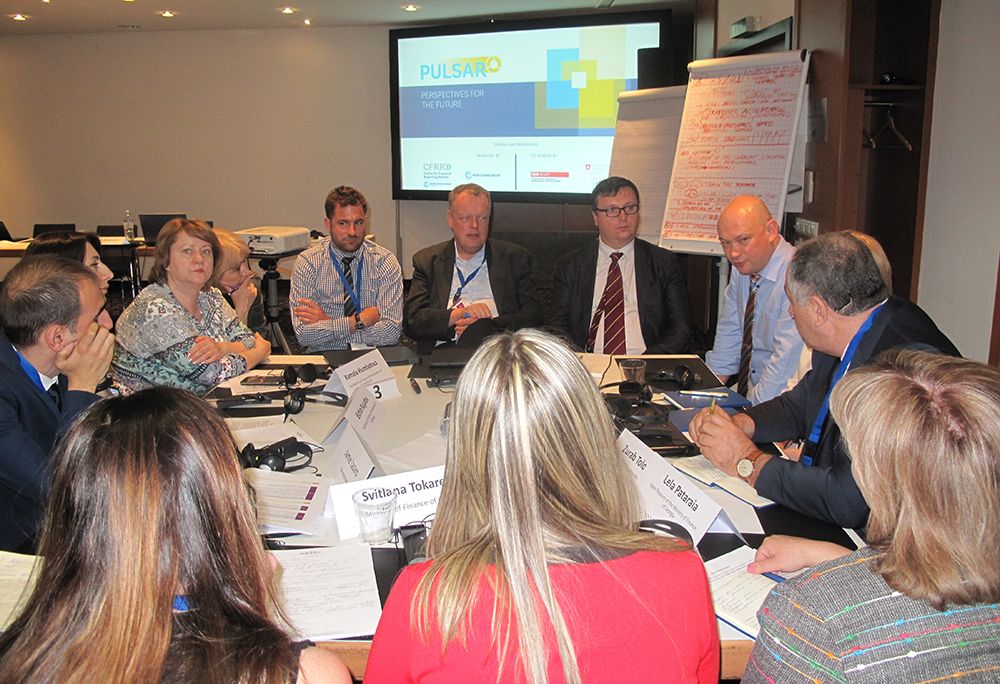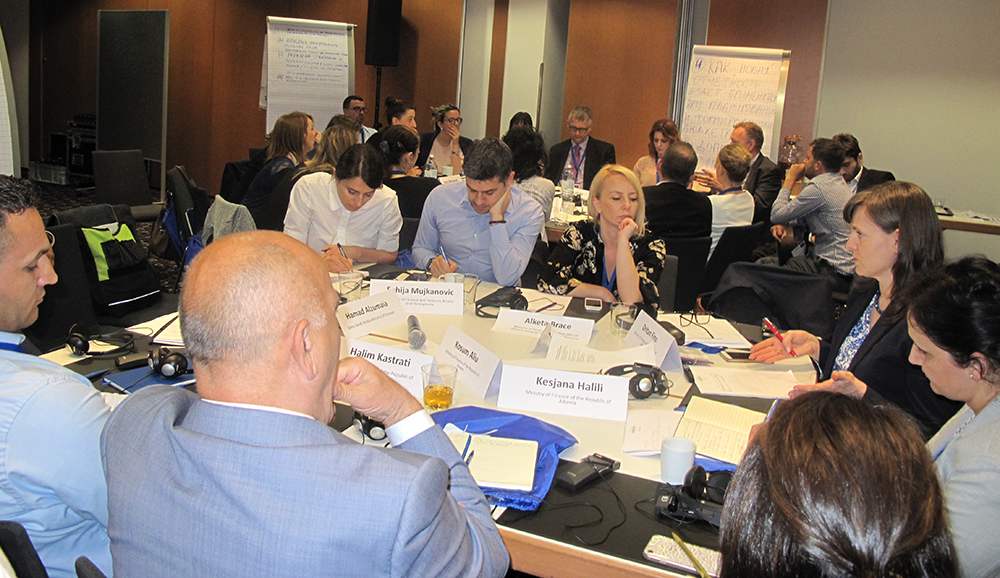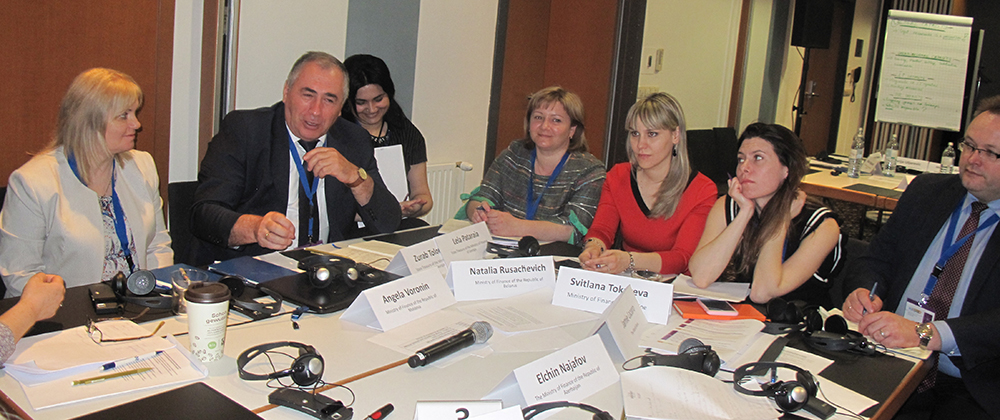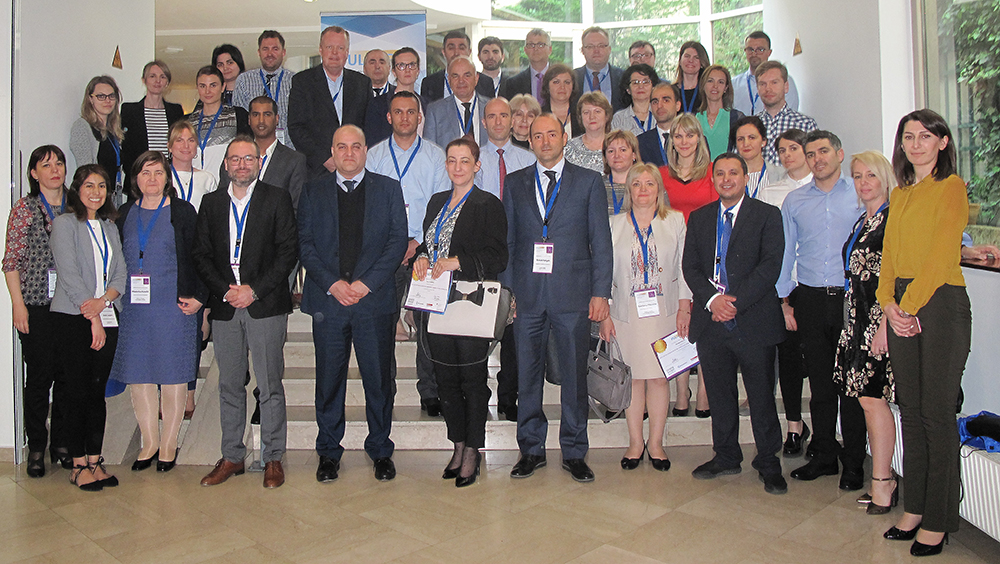From April 23-25, 2018, the second workshops of FinCoP and EduCoP were held in Vienna, bringing together more than 100 participants and speakers from 17 countries. Senior officials from MOF and Court of Audit of Austria joined the events, and leading international experts contributed to the sessions including representatives from IPSASB, CIPFA, Eurostat EPSAS Working Group, and IMF.
During the EduCoP workshop, the participants took a closer look at educational pathways designed for the development of public sector accounting professionals. The CFRR introduced a toolkit to help for integrating PSA (public sector accounting) into educational curricula in a way that fits with the general context of the PULSAR member countries. The toolkit was discussed in detail and participants agreed to start piloting it in their countries to assess the current PSA education framework and identify possible gaps. The participants engaged in a group exercise aimed at conceptualizing a PSA education pathway for their respective countries, taking into consideration the information and examples shared over the course of the workshop. Good practice examples of PSA education in participating countries and Austria were also shared within the group. In terms of next steps, the IFAC Accountancy Now virtual session will be organized between April and the next EduCoP meeting in November 2018. The participants also agreed on the importance of establishing a tool for collaboration between events.
During the FinCoP workshop, the participants explored similarities and differences between GFSM/ESA/SNA and IPSAS/EPSAS, learned good practices on sequencing of IPSAS implementation and roadmap development, shared knowledge about IPSAS requirements for consolidation of financial statements at the entity and whole-of-government levels, and learned developments under the EU EPSAS project. Delegates shared experiences and lessons learned from PSA reforms in their countries and emphasized the need to link them to broader PFM and budget reforms. The challenges of moving from cash to accruals and reconciling to GFSM/ESA were highlighted. The workshop also featured wide-ranging discussions on the impact of technology in the public sector. Recent innovations such as blockchain can make data exchange more secure as data is immutable within the blockchain, artificial Intelligence is used to analyze and identify potential fraudulent activity, and Big Data services such as Microsoft Power BI have proven useful in data analysis. The workshop concluded with the group agreeing on a number of priorities for future activities. The next FinCoP meeting in November 2018 will address ensuring political support and resources for PSA reforms as well as focus on unified chart of accounts. A virtual session on the advantages of accrual budgeting is also planned before the next F2F meeting.
